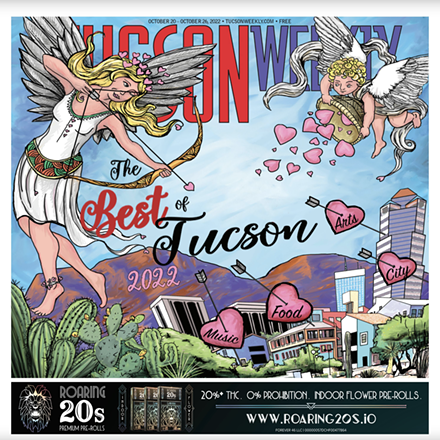As a music lover, it has always puzzled me that some people make it big while others — just as talented, just as driven — don’t.
The randomness is bewildering to an outsider; it has to be heartbreaking to that person trying to make it. Of course, there will be one-hit wonders and novelty acts who hit the big time for a split second, but there are also middling talents (or worse) who have long-lasting careers. There must be tens of millions of women in America who can sing better than Lana Del Rey and yet there she is, on her eighth album?
That’s what came to mind when I learned that Tucson jazz legend Cass Preston passed away.
Born and raised in Tucson, Preston grew up in a Southwest town where segregation was not only accepted, but it was also often the law. In recent decades, Tucson has been seen as a progressive enclave in a right-wing state. Back when Preston was growing up, Tucson was just another right-wing outpost in a right-wing state.
Tucson once had an abomination known as The Chinese Wall. It was a place where people of Hispanic origin could only use the one public pool in town on certain days of the week (and never on the weekend). And it was a place where every African American kid had to go to an all-Black school.
The Dunbar school still stands at University and Main and is now used for cultural activities. Back in the day, every African American kid in Tucson would attend the Dunbar School from kindergarten through the eighth grade. The principal was Morgan Maxwell Sr., for whom Maxwell Middle School, way out on the west side, is named. But then, once they completed the eighth grade, having been segregated their entire life, they would go on to Tucson High, which was integrated.
Preston, in a recorded interview for Archives Tucson, did not reflect kindly on his early education. He said, “Dunbar, I’m sorry. I didn’t get a good education. I got cheated. This is my take. The Black teachers came from the South. They had degrees, but I don’t know how well-educated they were because I didn’t get much. Well, every time I think about Dunbar, I think negative.”
The interviews he gave are priceless. He talked about growing up near South Park and walking through the “Mexican neighborhoods” to get to Downtown. That whole area was strictly segregated. He could go see a movie at the Fox Tucson Theatre, but he would have to sit upstairs in the balcony. The only way he could enter El Charro restaurant was to pick up a to-go order; no way he could dine there.
In his early teens, he found music, or maybe it found him. Whatever the case, it sparked a lifelong romance that spanned eight decades. His eyes would light up when he would tell the story of how he picked up jazz legend Louis Armstrong, a family friend, from the airport.
The teenager listened to Duke Ellington and Count Basie and sometimes try to play along.
Preston played trumpet in the Tucson High School band and was a good enough athlete to earn a high jump college scholarship.
Back in post-World War II Tucson, Meyer Street (now Avenue) was the place to be. There were all kinds of clubs that catered to all kinds of tastes and temptations. You can just visualize it like it’s something out of an Easy Rawlins novel.
When he was old enough, he would play at The Beehive, a jazz joint. It was on Convent, one street over from Meyer. He would play trumpet and get paid $3 a night. Imagine doing what you love and getting paid for it. Many of the town’s prostitutes lived out back behind The Beehive.
The realities of adulthood caught up to him and he had to deal with grown-up stuff. He earned bachelor’s and master’s degrees from college, served for a time in the Air Force, and then taught P.E. at Pueblo High School for 20 years. Yet, all that time, he and music were inextricably intertwined.
Jazz is not an easy sell. While it is not strictly a Black art form (either in musicianship of fandom), it does tend to skew in that direction. Back in his day, the Black population of Tucson was around 2%, a stunningly low number. (Even today, it’s barely at 5%; Anchorage has a higher percentage of African Americans than Tucson.)
Plus, not everybody likes jazz. I remember the great line from “The Commitments,” a classic movie about a bunch of kids in Dublin who get together to form a soul-music band. Their young manager scolds a trumpeter for spiraling, yelling, “Jazz is just musical wanking!”
But Preston always found someplace to play. He would list off the places (now all gone) where he would play — Executive Inn, The Beachcomber (in Tucson?!), Gun & Andy’s, Monte Vista and Jester’s Court. More recently, he played at Kingfisher.
Cass Preston died in April at the age of 93. It was way cool they waited until the weekend of Juneteenth to host a celebration of his life. And they did it at the Dunbar School.






